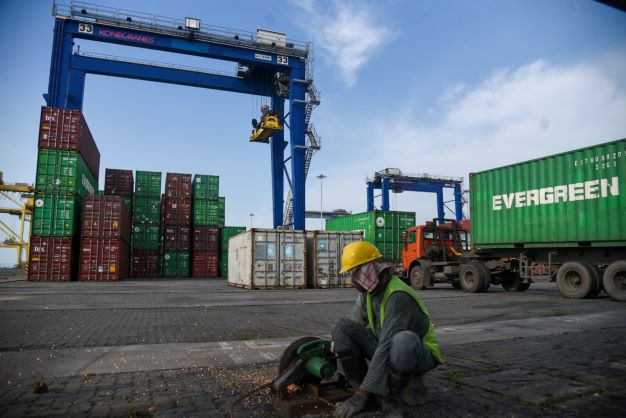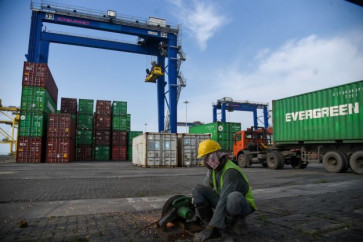Popular Reads
Top Results
Can't find what you're looking for?
View all search resultsPopular Reads
Top Results
Can't find what you're looking for?
View all search resultsIndonesia’s quest for a smart port: How far can it go?
To accelerate smart-port implementation, the government should give more opportunities to the private sector.
Change text size
Gift Premium Articles
to Anyone
S
mart port is a new mantra of our time that is often used interchangeably with other phrases like smart ocean and digitalization of sea. Indonesia, like many countries in the world, is also turning to the rhythm. Of course, the level of applicability among them varies. While there is no common definition of the concept, all embrace Artificial Intelligence (AI) and Internet of Thing (IoT) to operate.
In terms of geographic features, Indonesia is basically the best cultivating ground for the venture. But some challenges hinder the implementation of smart port here. The first problem concerns the involvement of multiple regulators.
By law, Indonesia’s port governance falls under the remit of the Transportation Ministry, and specifically the Directorate General of Sea Transportation, in which there is a Directorate of Port Management.
The ministry’s authority covers all spectrums of port, ranging from the government-owned facilities, state-owned enterprises to those operated by private entities. However, ferry ports are exempted and separately tackled by the Directorate General of Land Transportation.
For the implementation of the smart-port concept, there are other agencies that take the leading role, i.e. the Office of Coordinating Maritime Affairs and Investment Ministry and the Finance Ministry. As such, this situation has created a myriad of platforms that unfortunately do not connect with each other, requiring offline efforts to complete the job.
Currently the two biggest platforms in place are: Indonesian National Single Window (INSW) and Indonesia Portnet (Inaportnet).
The former is promoted by the Customs and Excise Directorate General under the Finance Ministry and dedicated to serve export-import documentation. The latter was founded by the Transportation Ministry, aiming at ship information (port of origin/destination, cargo manifest, etc.).



















